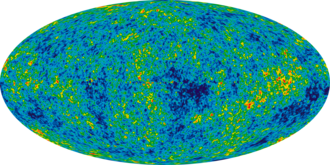
Multiverse
Gematria Values
The multiverse is a hypothetical set of multiple possible universes, including the one in which we live. The term was coined in 1895 by the philosopher and psychologist William James, but has since been used in various contexts in philosophy, cosmology, and fiction. In Hebrew, the term is translated as מולטיוורס (Multivers) or עולמות מרובים (Multiple Worlds). In other languages, it is known as Multiverso in Spanish, Multivers in French, Multiversum in German, and Multiverso in Italian. The concept of the multiverse encompasses several theories, including the many-worlds interpretation of quantum mechanics, which suggests that all possible outcomes of quantum measurements become real in some "world" or universe. Other theories include the bubble universes of eternal inflation, the simulation hypothesis, and the mathematical universe hypothesis. The multiverse remains a speculative idea with no empirical evidence, but it has gained significant attention in both scientific and popular culture discussions.
Wikipedia Information
